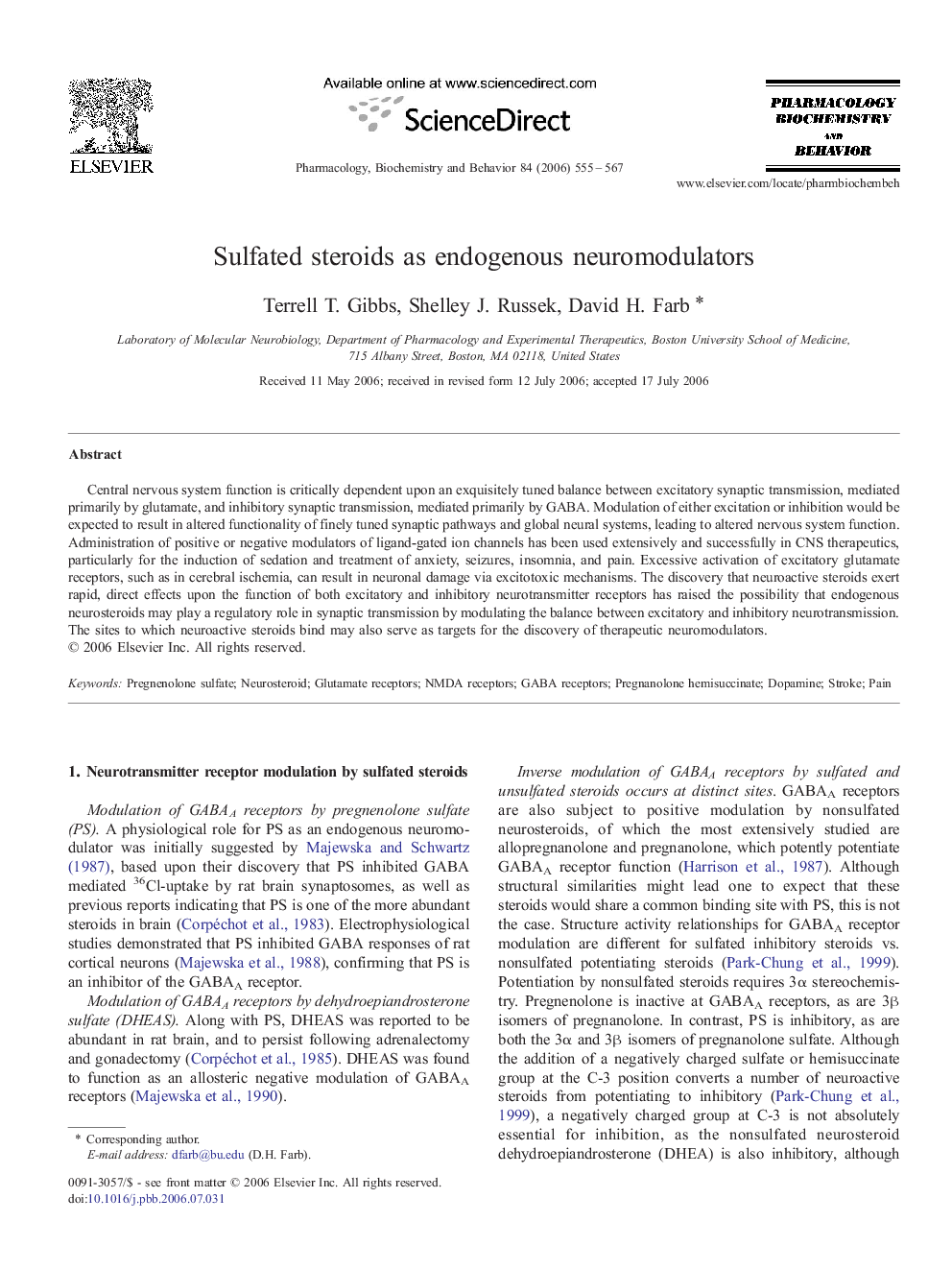| Article ID | Journal | Published Year | Pages | File Type |
|---|---|---|---|---|
| 2014464 | Pharmacology Biochemistry and Behavior | 2006 | 13 Pages |
Central nervous system function is critically dependent upon an exquisitely tuned balance between excitatory synaptic transmission, mediated primarily by glutamate, and inhibitory synaptic transmission, mediated primarily by GABA. Modulation of either excitation or inhibition would be expected to result in altered functionality of finely tuned synaptic pathways and global neural systems, leading to altered nervous system function. Administration of positive or negative modulators of ligand-gated ion channels has been used extensively and successfully in CNS therapeutics, particularly for the induction of sedation and treatment of anxiety, seizures, insomnia, and pain. Excessive activation of excitatory glutamate receptors, such as in cerebral ischemia, can result in neuronal damage via excitotoxic mechanisms. The discovery that neuroactive steroids exert rapid, direct effects upon the function of both excitatory and inhibitory neurotransmitter receptors has raised the possibility that endogenous neurosteroids may play a regulatory role in synaptic transmission by modulating the balance between excitatory and inhibitory neurotransmission. The sites to which neuroactive steroids bind may also serve as targets for the discovery of therapeutic neuromodulators.
